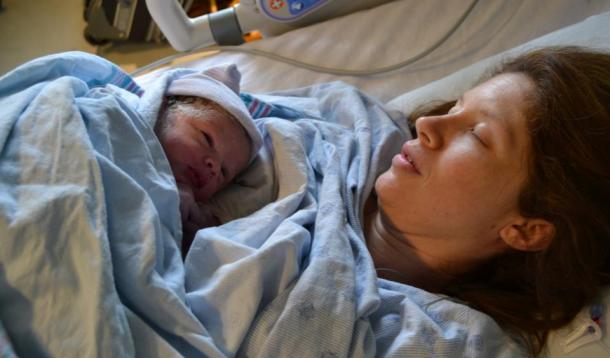
Do you have a spring cleaning routine? Perhaps a more relevant question would be “do you have SPRING?” While so many of us still can’t see the spring for the snow/rain/single digit temperatures, others are thrilled to be unfollowing their winter gear and comfort food in preparation for warmer weather. Spring, after all, is about feeling lighter. Those among us, searching for jobs will, no doubt, feel invigorated about pursuing their job search in a non-polar vortex reality, but what about their résumés? Don’t they deserve to feel lighter too?
Do you ever feel overwhelmed by the amount of information you’re trying to pack into this fairly restricting two-page format? Try applying some spring cleaning de-clutter principles to make your résumé more reader friendly. Below is my suggest purge checklist:
The Objective category is a résumé trap we set up for ourselves. By including it we are forced to discuss our future goals, but to do so using terms that are vague enough so as not to write ourselves out of a given job. So what’s the point then? Consider this as well: from an employer’s perspective the applicant’s primary objective, and therefore the most relevant one, should be securing the position they’ve applied for. Employers are not concerned with custom designing our dream job based on objective but rather with filling an opening they have. Et voila, the reasons why I find this category redundant.
Instead of an objective on my own résumé I always add the title of whatever position I’m applying for next to my name, so it would appear this way: KATIA BISHOPS – LEAD RECRUITER, listing my contact info underneath. A much more suitable platform to discuss your career progression and goals, would be your cover letter or interview.
Unless you stay in the academia or assume a research-based role, school life bears little relevance to “real life” and therefore this information does not belong on a professional résumé. The only other possible exception to the rule would be if you’re currently a high school student or a recent graduate with no work experience in which case you’ll selectively apply to your résumé such information as: academic excellence awards and membership in committees where you’ve gained work-related transferrable skills.
If you’ve graduated with a BA degree, listing the dates you’ve attended high school is not necessary. The fact you’ve paid your high school dues is implied by your obtaining an academic degree. The same goes for graduating with a BA degree and proceeding into a MA program in the same field of studies.
If you’re applying for an administrative role in the financial sector don’t include the fact that you’re a licensed forklift operator, even though this information would be useful in a general labour oriented résumé.
A typically unnecessary category. If the employer’s interested they’ll bring this up during your interview.
Of course they are! Pointing this out is about as useful as stating: “I have skills and I will discuss them with you should I be invited to an interview.”
Good luck and happy cleaning!
![]() RELATED: Spring Clean Your Sleep Routine!
RELATED: Spring Clean Your Sleep Routine!

It’s a good thing I don’t keep neat little notebooks with pros and cons lists and other things I imagine people with a birth plan would tackle. Had I kept such a notebook with a birth plan that included Epidural, I’d be one chagrined camper in the spring of 2009 and summer of 2012. This was when I experienced childbirth without Epidural and it was... owie. I know that people with a plan sometimes struggle greatly when it falls apart. The notion of having invested time and effort into coming up with a perfect, tailor-made solution only to have it derailed by circumstances can be frustrating (welcome to parenting). While I didn’t commit to Epidural, I also did not commit to not getting it. It wasn’t as if I was all “birth with no Epidural? TWICE? Don’t mind if I do!”
So how did I end up in this predicament?
Don’t let my Zen go-with-the-flow attitude fool you. I came in as well-prepared in theory for my first childbirth experience as a virgin approaching sex. I took a prenatal class and knew exactly what to do if I felt like giving birth on all fours or launching my child into the world from a Yoga ball. I read “What to Expect When You’re Expecting” but I also knew to expect the unexpected. It was only at the hospital as I was having my contractions that I started realizing just how broad of a category “the unexpected” was. A thing I was just learning, for example, was that when I’m having contractions it hurts when people talk and mirror my feelings in a re-affirmative way (“I can sense that you’re in a lot of pain”) and that it doesn’t help to be touched - sorry mom and hubby. I learned that my manners while contracting remain intact. You would never be able to tell how low on my priorities list was prepping the next generation of obstetricians from the way I was apologizing as I was contracting and helping a medical student with her homework.
I can’t remember at what point I asked for Epidural but there was relief even just in the act of asking. What I didn’t know was that I wouldn’t be getting the coveted injection. I was experiencing a complication and in the blink of an eye things got very ER (as in the TV show that made George Clooney the famous social activist he is today). As I was being rolled to the OR while being confronted with some highly concerning facts (I had a placental abruption and my baby’s heart rate was dropping) and some reassuring ones (there were things that I could do to help him: push) I was learning what an out-of-body experience felt like. I detached myself from the situation and became a bystander - a bystander who was about to PUSH like they were the first pusher to ever push and teach the rest of the world how it’s done.
My out-of-body experience was interrupted only by a strangely assertive doctor who demanded that I — as in the transcendental being who is having contractions and complications — take off my wardrobe choice of pink gown stat. Like YESTERDAY. Seeing that this is probably the only time in your life when a command like that is acceptable, I did it, but not without resenting the tone. What else could I do for you, Sir? Would you also maybe like me to remain totally naked and cover pretty much nothing but my mid section with a cocktail napkin size towel ? He actually did. So once again I did it. Where was my feelings barometer mom now? (“you must be feeling very exposed”). I did push like those guys who chain themselves to idle cars and drag them across the street for entertainment value and my baby (turning seven years old next month) was out in twenty minutes. My pushing skills and ability to get him out before things went from bad to worse received the appropriate recognition from the medical staff, which nicely balanced off the awkward vibe I got from the towel incident and I’ve clearly put this behind me and don’t even remember it anymore. Not getting Epidural turned out to be a good thing, as it might have interfered with my pushing, but I can’t say I didn’t wonder. Epidural became the one who got away. What would it have been like? We could have been so good together.
Fast forward to 2012 and my next chance to get that question resolved. I may have been more Epidural-curious this time around. The contractions were even more painful as a result of hours of not going into labour and eventually deciding to be induced with Oxytocin. I don’t remember the specifics, but the dialogue as I was contracting may have sounded something like this:
Nurse: let us know if...
Me: I DO!!!!!!!!!!
This birth came and went with no special complications, unless you consider a seasoned nurse, who mistakes your labour signs for something else, non-laboury, a complication. If I thought that talking while contracting with no Oxytocin in my system was hard, then I was in for an eye opener. The birthing nurse kept instructing me to roll from side to side and attempt other positions more suited for pretty much anyone with muscles and a spine who isn’t actively going into labour. I did manage to get an Epidural injection this time, but there was one catch. It was doing nothing for me. As I was busy following the nurse’s instructions reflecting her interpretation of what was happening to me and her vision of what should be, she was having a professional disagreement with the doctor who administered my injection. Moments later she handed me my younger son with the same pizzazz and determination with which she argued my non-labour pretty much until the moment a head emerged, slightly hitting same head on a piece of medical equipment. The Epidural kicked in just in time for me to feel numb and light headed as I was being moved to the recovery room after giving birth.
Sometimes people who generally don’t plan can be a bit fatalistic and believe that things happen exactly the way they should.
Maybe Epidural and I just weren’t meant to be.

To put the bottom line first, I'm grateful for the recent decision made by the Human Rights Tribunal of Ontario to treat one woman's miscarriage as a case of disability. If the ensuing shift in disability law which CBC alludes to will indeed occur, then going on a disability leave when you miscarry could become a reality. This will allow women going through some of the most difficult times in their lives to honour their loss and to grieve .
It's the healing part that I'm wondering about.
In August 2011 after one year of failed fertility treatments, I learned that I was pregnant. I was a full-time working mother of one at the time. Seven weeks later, in October, I learned that being pregnant doesn't always mean you get to have your baby. As someone who didn't always have first-hand experience at miscarriage herself, I realize that some of you might be thinking that losing a pregnancy at seven weeks "before you become attached to them" is lucky. Let me set the scene for you. One year of fertility treatments means a whole bunch of hormones, a whole bunch of physical and emotional discomfort but most importantly a whole bunch of hope developing with every developing egg and then being repurposed as the treatment fails and recycled to be used again in the next round. Every one of the five IUI cycles I went through meant two weeks of not knowing if the procedure took or not. You'd spend those two weeks behaving like you're pregnant to protect your baby while convincing yourself that you're not to protect your heart. You ARE attached, like it or not, and you've been attached to this baby and the promise of an extended family that it carries long before conceiving it. Becoming pregnant with it is just a mere technicality and if you don't believe me just look at that photo of me that my mom took a few days after I found out that I'm without him again. This is what losing a promise looks like.
The blow was delivered in three takes, the last one of them being a surgical procedure which was scheduled for a Friday. I went back to work on Monday on the last week of October having missed a few days at work throughout that month. Had a disability leave been available to me I would have probably taken it. Would this have been the right decision for me? In hindsight I can say no, with certainty.
Healing from miscarriage is achieved through trial and error. None of us are prepared for it and we don't know in advance what's going to work for us and what isn't. I found out that despite my initial retreat and desire to shut myself off as I go into hiding what ended up helping me most was actually involving other people in my healing process.
Please don't get me wrong. I do not intend to advocate for immediate return to work after miscarriage here. Again, I would support any type of law designed to promote healing after an experience that can be so scarring. My intention is to simply point out the advantages of socialization and bring awareness to another "method" of healing - one that we may miss out on if we elect to go on disability leave.
I had an extremely understanding and supportive boss at the time of my pregnancy loss and I was able to take off the days that I needed and wanted without having to negotiate. At the same time, however, for a variety of professional and personality-related reasons I felt compelled to return to work. As I was still processing, grieving, hoping and learning to come to terms, I was taking sporadic dives into my work life and the social life engulfing it. Gradually returning to work and immersing myself in the support of my colleagues was not a calculated decision (I wasn't capable of calculation) but rather a wonderful discovery. That controlled, intermittent and gradual exposure to work turned out to be of immense importance.
Despite my initial inclination to shut myself off there were many unforeseen advantages to forcing myself to be around people:
Receiving Compassion:
Sometimes stepping away is not really a choice but rather a necessity. There were moments when I couldn't face the world. I am not urging anyone in that state to ignore it and embrace my advice to put themselves out there. The problem starts when due to inertia and by force of habit and comfort staying secluded becomes the only thing we know how to do and we end up depriving ourselves of the compassion that others may be capable and willing to offer. When you lose a loved one no one expects you to grief alone. People will offer their condolences. Some will listen to you talk about your loss, or even encourage you to open up by asking you questions. Some will act similarly upon learning about your pregnancy loss. Others might find it harder to relate to miscarriage due to lack of experience and may feel unable to think of the right thing to say but you'll see them trying and sometimes failing but you'll be able to read the message between the lines: I care.
Exposure:
Exposure is a two-way street. Based on my experience, having learned about what you've been through co-workers who have gone through the same will be more likely to share their stories with you. You'll feel supported and less alone. Pregnancy is very visible, miscarriage isn't. You may have spent an entire year, like me, noticing pregnant bellies around you, You've seen no miscarriages. Miscarriages are usually only "aired out" by other miscarriages. Opening up will not only encourage others to open up to you but could ultimately lead to a normalization of public discourse about miscarriages. THAT shift in public opinion whereby we will no longer treat the subject as awkward, if you ask me, would be no less significant than any type of relevant legislation.
Rehabilitation:
I came back to work to attend a client event with my colleagues. I was wearing the scarf you see in the picture and was at my most vulnerable. I felt that I could burst into tears any minute. Instead I received a hug from a friend who knew and whose wife was going through the same, a "you're so cute" from another colleague who had no idea and another hug and a "we're here for you" from a client who was also oblivious but came to express their professional gratitude. Not everyone will be coming back to a situation offering such condense support, but your colleagues will find other ways to express it. Talking with others in the days following my breakage and seeing myself reflected in their eyes helped rebuild my confidence and restore my sense of self worth. Working intermittently and immersing myself in my job — while perhaps unrealistic in certain industries and professions — allowed me to observe the results of my efforts manifested in professional successes and further contributed to the same.
I realize that by supporting legislation allowing women to go on disability after a miscarriage, on one hand, and suggesting that they return to work, on the other, it may seem like I'm trying to have my cake and eat it too. What is the proposed alternative then? Flexibility. I would still like to see greater involvement of the party who suffered the miscarriage in the development of a return to work plan than is customary these days for employees returning from a disability leave and for the plan to allow for flexibility - as mentioned, nobody is prepared for this in advance or knows what it will take for them to heal properly. Most of all I would like to treat the "sickness" so to speak rather than the symptoms (the sickness being the silence that surrounds the topic of miscarriage) and to identify channels for opening up the discussion about pregnancy loss and to continue de-tabooing it and not just on the internet . I'm afraid that in the current status quo a potential legislation, well-intentioned as it may be, confining a woman to her home makes me wonder if we're indeed protecting her via isolation or rather shielding her co-workers from the awkwardness of dealing with it?